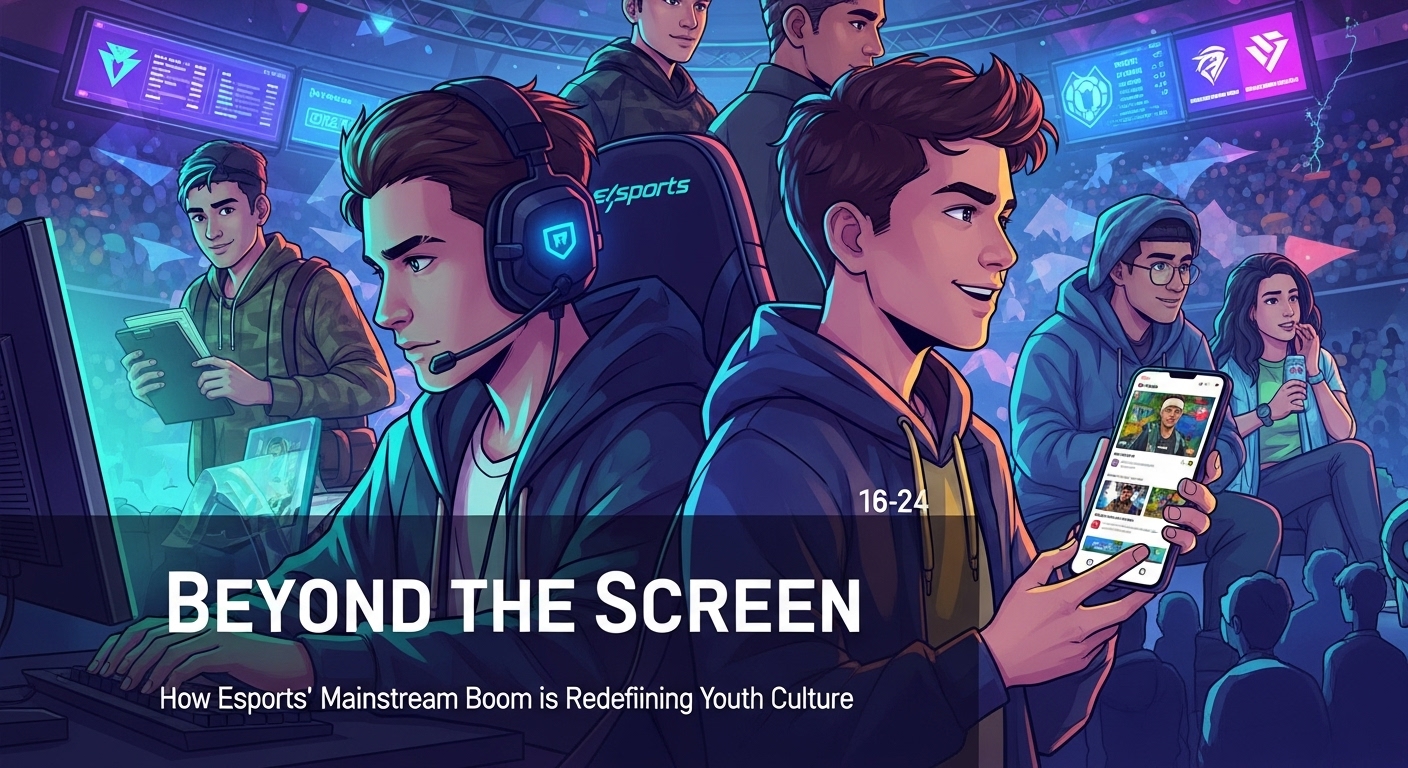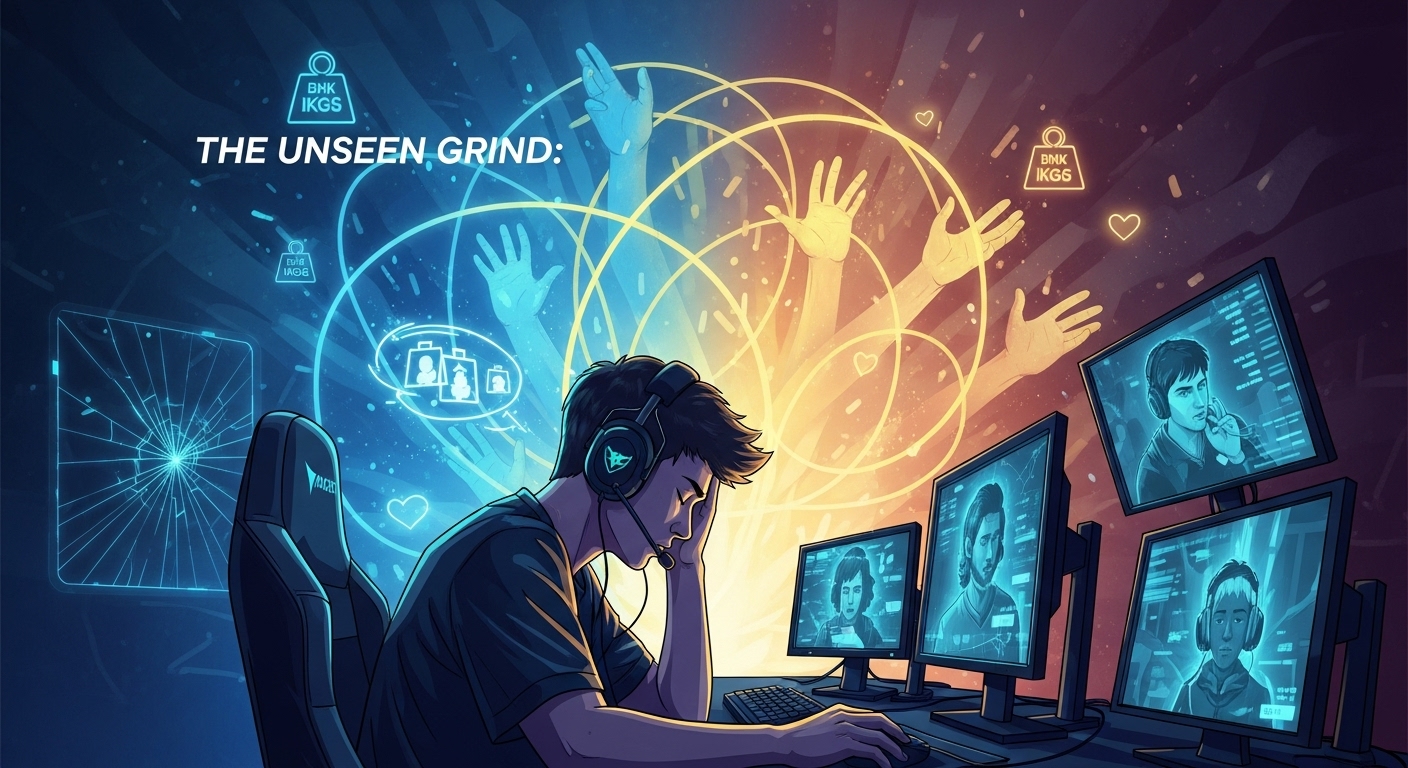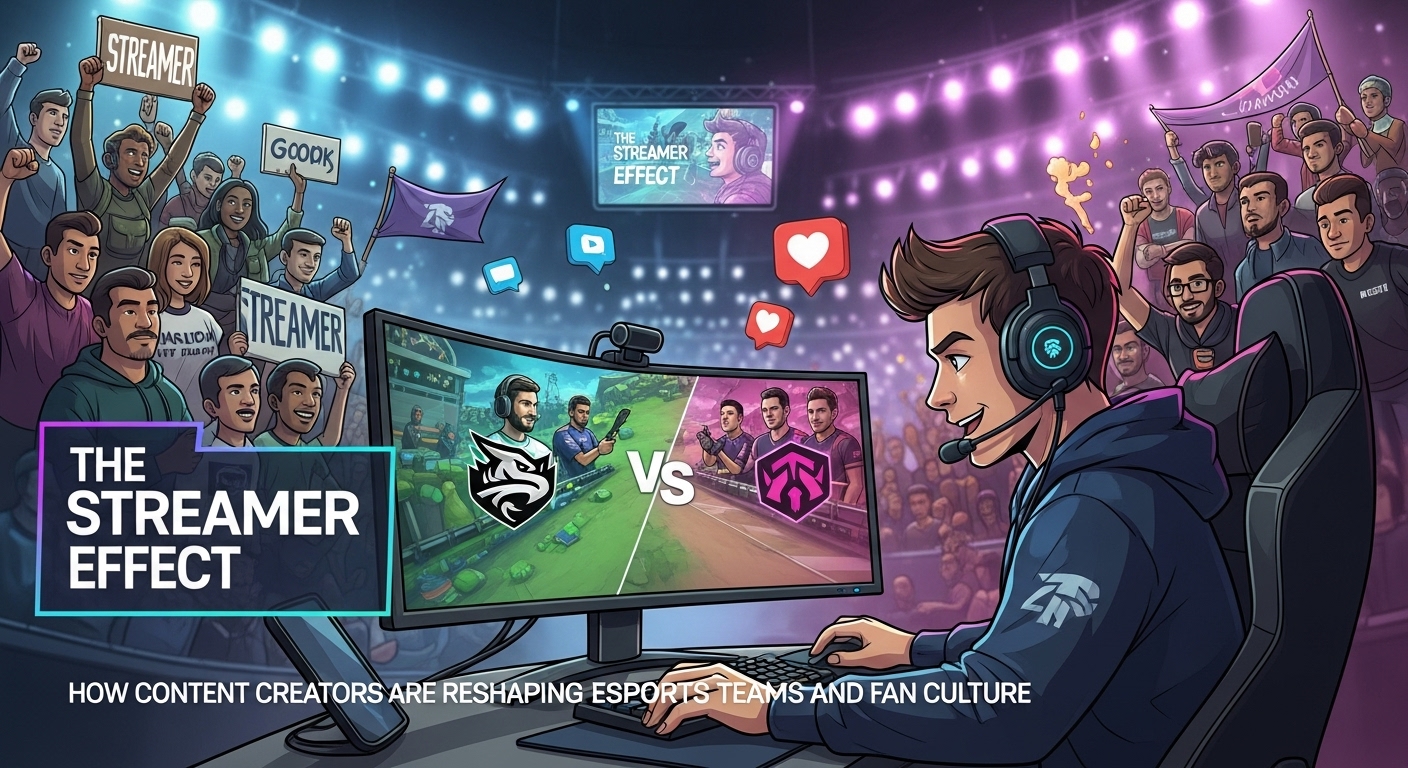The Digital Revolution Has a New Name: Esports
Remember when video games were just a pastime? A way to unwind after school, tucked away in a bedroom or basement? Those days are a distant memory. Today, the world of competitive gaming, or esports, has erupted from a niche hobby into a global cultural phenomenon. Packed stadiums roar for digital athletes, multimillion-dollar prize pools are the norm, and a new generation is finding its identity, community, and future not on a sports field, but in a digital arena. This isn’t just about playing games anymore; it’s about a fundamental shift in how young people connect, compete, and consume content. The mainstream boom of esports is actively redefining youth culture, creating a vibrant and complex ecosystem that extends far beyond the screen.
The New Social Square: Digital Arenas as Community Hubs
For previous generations, the mall, the park, or the local movie theater were the epicenters of social life. For today’s youth, those spaces are increasingly digital, hosted on platforms like Discord, Twitch, and within the game lobbies of titles like Valorant, Fortnite, and League of Legends. These are not just places to play; they are bustling social squares where friendships are forged, communities are built, and identities are explored.
Communication in the Digital Age
In-game voice chat and dedicated Discord servers have become the modern-day equivalent of a phone call or a neighborhood hangout. Young people are developing sophisticated communication skills, learning to coordinate with teammates from different backgrounds and countries in high-pressure situations. They’re mastering the art of concise, effective communication, strategic planning, and collaborative problem-solving. This constant interaction builds a unique form of social literacy, one that is native to the digital world. The intricate relationship between e-sports & culture is most evident here, where shared experiences in a game translate into real-world bonds.
A Global, Inclusive Playground
Unlike traditional sports, which can be limited by physical location or attributes, esports offers a more accessible and often more inclusive playground. A player in Ohio can team up with someone in South Korea, united by a shared goal and a common passion. This global connectivity breaks down geographical and cultural barriers, exposing young people to diverse perspectives and fostering a sense of global citizenship. It’s a community built on skill, strategy, and mutual respect for the game, creating a powerful sense of belonging for many who might feel like outsiders in more traditional social settings.
From Hobbyists to Heroes: The Rise of the Esports Athlete
The perception of the ‘gamer’ has undergone a radical transformation. The outdated stereotype of a solitary figure in a dark room has been replaced by the image of the professional esports athlete: a dedicated, highly skilled competitor with a rigorous training schedule, lucrative sponsorships, and a massive global fanbase. Players like ‘Faker’ (Lee Sang-hyeok) in League of Legends or ‘s1mple’ (Oleksandr Kostyliev) in Counter-Strike are household names to millions, celebrated for their incredible talent and dedication.
The Path to Pro: Discipline and Dedication
Becoming a top-tier esports professional is no less demanding than reaching the pinnacle of traditional sports. It requires thousands of hours of practice, strategic analysis, and VOD (video on demand) reviews. Professional teams employ coaches, sports psychologists, nutritionists, and physical trainers to ensure their players are in peak condition, both mentally and physically. This professionalization has legitimized esports as a viable career path, inspiring countless young players to pursue their dreams with a newfound sense of purpose and discipline.
An Ecosystem of Opportunity
The boom has also created a vast ecosystem of jobs around the players themselves. For every star on stage, there are dozens of professionals working behind the scenes. Career paths now include:
- Shoutcasters and Analysts: The voices of esports, who break down complex gameplay for millions of viewers.
- Coaches and Team Managers: Strategists who guide teams to victory.
- Content Creators: YouTubers and Twitch streamers who build communities around their personality and gameplay.
- Broadcast and Event Production: The technical wizards who produce the massive, high-quality live events.
- Journalists and Marketing Professionals: Storytellers and brand builders who shape the narrative of the industry.
This expanding job market shows that a passion for gaming can lead to a stable, rewarding career, further cementing the role of e-sports & culture in shaping the aspirations of the youth.
The Language and Aesthetics of Gaming Culture
Like any influential subculture, esports has its own unique language, style, and set of values that are now permeating mainstream youth culture. Gaming terminology has seeped into everyday slang. Phrases like ‘GG’ (Good Game), ‘pog’ (an expression of excitement), or ‘nerf’ (to weaken something) are now understood by many outside the immediate gaming community. This linguistic crossover is a clear indicator of the cultural impact of esports.
Fashion, Music, and Mainstream Crossovers
The aesthetic of esports is also making its mark. High-end fashion brands like Louis Vuitton have collaborated with League of Legends, and sportswear giants like Nike and Adidas sponsor esports teams and players. The sleek, RGB-lit look of a gamer’s setup influences product design, while the music from games and popular streamers’ playlists climb the charts. Artists like Travis Scott and Ariana Grande have held massive virtual concerts within Fortnite, demonstrating the power of gaming platforms as the new frontier for entertainment and cultural events.
Education and Skills for the 21st Century
The educational establishment is beginning to recognize the value of skills honed through competitive gaming. Universities across the world are now offering esports scholarships, building state-of-the-art gaming arenas, and creating academic programs focused on the esports industry. Educators are acknowledging that gaming develops critical skills essential for the 21st-century workforce, such as:
- Strategic Thinking and Problem-Solving: Esports requires players to analyze complex situations and make split-second decisions.
- Resilience and Adaptability: Learning from losses and adapting strategies on the fly is core to competitive gaming.
- Teamwork and Leadership: Success in team-based games is impossible without effective collaboration and leadership.
This academic validation is a crucial step in shifting parental and societal perceptions, framing esports not as a distraction, but as a legitimate and beneficial developmental activity.
Join the Conversation: The Future is Digital
The rise of esports is more than a trend; it’s a cultural tidal wave. It is reshaping social interaction, creating new heroes, influencing mainstream fashion and language, and opening up unforeseen career and educational pathways. The synergy between e-sports & culture has created a dynamic new landscape for an entire generation. While challenges around screen time and online toxicity remain important conversations to have, the overwhelmingly positive impact on community-building, skill development, and global connectivity cannot be ignored. The digital arena is the new stadium, the pro-gamer is the new rock star, and the culture they are building is the blueprint for the future. What are your experiences with the rise of esports? How have you seen it change the world around you? Share your thoughts in the comments below!


